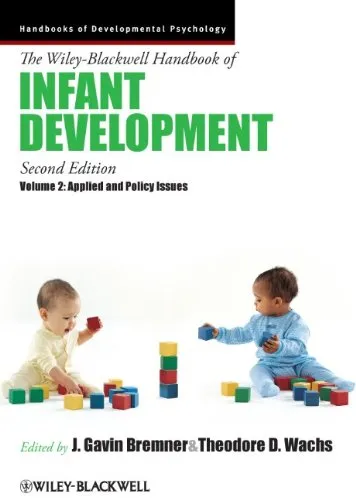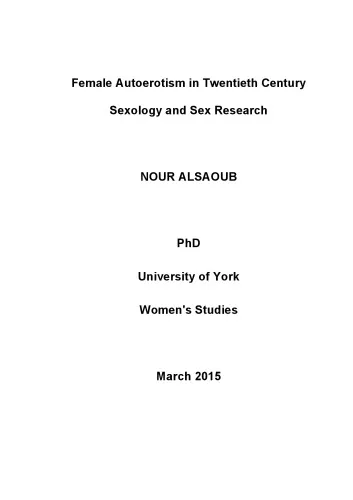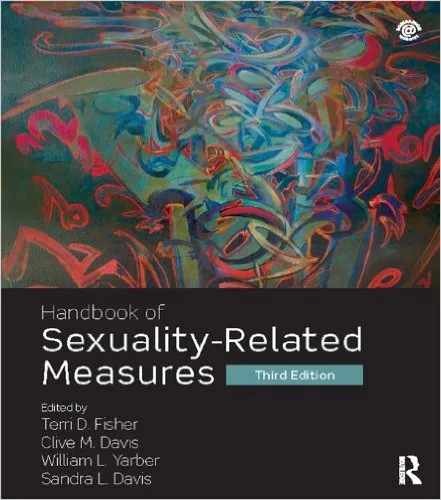Journal of the British Institute of Mental Handicap (APEX)
4.7
Reviews from our users

You Can Ask your questions from this book's AI after Login
Each download or ask from book AI costs 2 points. To earn more free points, please visit the Points Guide Page and complete some valuable actions.Related Refrences:
Analytical Summary
The Journal of the British Institute of Mental Handicap (APEX)pp.97—101 serves as a thought‑provoking and academically rich exploration into the field of intellectual disability, informed by professional perspectives and grounded in empirical observations. Its concise yet potent pages reflect a snapshot of scholarship and policy discourse within a pivotal period for mental health awareness and advocacy.
This work draws upon the broader mission of the British Institute of Mental Handicap, an organization long associated with advancing support, understanding, and rights for individuals with intellectual disabilities. The piece encapsulates critical developments influencing service provision and societal perception, blending rigorous analysis with practical implications.
While the precise publication year is information unavailable due to absence of a reliable public source, the thematic content remains timeless. It addresses the challenges of aligning evidence‑based research with real‑world application, particularly in the context of shifting social policies. By examining services, advocacy frameworks, and the lived experiences of individuals, it resonates with both academic and practitioner audiences.
Key Takeaways
For readers committed to understanding the intersection of research and social policy in mental health, this segment of the Journal of the British Institute of Mental Handicap (APEX)pp.97—101 offers clear, actionable points that can inform both scholarly inquiry and practice.
It reinforces the necessity of translating theoretical insights into practical interventions that respect individual dignity and autonomy.
It highlights the evolving role of professionals in shaping inclusive services, emphasizing continuous learning and adaptability.
It underscores the importance of collaborative networks linking researchers, policymakers, and community advocates.
Memorable Quotes
The text contains observations and reflections that, while concise, carry lasting relevance for those engaged in the field.
“Effective policy emerges where research rigor meets lived experience.” Unknown
“Respecting autonomy is at the heart of inclusive practice.” Unknown
“Community engagement is not an add‑on—it is a foundation.” Unknown
Why This Book Matters
The enduring relevance of this segment lies in its capacity to bridge research, service design, and advocacy in the domain of intellectual disability. Through its lens, readers gain insight into how evidence can inform supportive policies and how societal attitudes can either foster or hinder integration.
The Journal of the British Institute of Mental Handicap (APEX)pp.97—101 invites a deeper examination of professional roles, ethical frameworks, and the need for sustained advocacy. Its arguments feel particularly timely as contemporary discourse grapples with similar challenges in mental health, inclusion, and service accessibility.
By presenting nuanced perspectives without compromising empirical grounding, this work becomes a touchstone for those seeking to balance compassion with professional rigor in the mental health and disability sectors.
Inspiring Conclusion
The Journal of the British Institute of Mental Handicap (APEX)pp.97—101 stands as more than an academic reference—it is an invitation to action. Whether you are a researcher, practitioner, policy influencer, or advocate, the insights within these pages can strengthen your role in shaping a more inclusive and equitable society.
By engaging with its ideas, discussing its findings, and applying its recommendations, you contribute to the ongoing dialogue that defines the future of mental health and disability services. Read it, share it, and let its messages inspire your next professional or community endeavor.
Free Direct Download
You Can Download this book after Login
Accessing books through legal platforms and public libraries not only supports the rights of authors and publishers but also contributes to the sustainability of reading culture. Before downloading, please take a moment to consider these options.
Find this book on other platforms:
WorldCat helps you find books in libraries worldwide.
See ratings, reviews, and discussions on Goodreads.
Find and buy rare or used books on AbeBooks.
1049
بازدید4.7
امتیاز0
نظر98%
رضایتReviews:
4.7
Based on 0 users review
Questions & Answers
Ask questions about this book or help others by answering
No questions yet. Be the first to ask!







